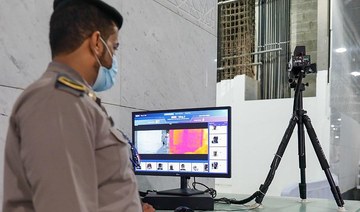JEDDAH: Najran Gov. Prince Jalawi bin Abdul Aziz bin Musaed has ordered the immediate suspension of all events and festivals in the region as part of a nationwide effort to control the spread of coronavirus.
He also called on the concerned authorities to intensify field inspections and impose statutory penalties against violators.
The decision affects 21 planned events that were scheduled to be held over the next two weeks.
Saudi Arabia has seen a steady increase in the number of infections in the past few weeks.
On Tuesday it recorded its highest number of daily COVID-19 cases in more than two months, amid concerns from the health minister about people’s “complacency” toward preventive measures.
There were 310 new cases reported, bringing the total number of confirmed infections in the Kingdom to 368,639. There are 2,146 active cases, with 375 of them in critical condition.
The last time the country’s COVID-19 cases exceeded 300 was on Nov. 27, 2020.
“We have unfortunately, in recent days, registered a noticeable increase and continued rise in infections,” Saudi Minister of Health Dr. Tawfiq Al-Rabiah said on Sunday. “One of the main reasons is gatherings and complacency with precautionary measures.”
#الصحة تعلن عن تسجيل (310) حالة إصابة جديدة بفيروس كورونا (كوفيد-19)، وتسجيل (4) حالات وفيات رحمهم الله، وتسجيل (271) حالة تعافي ليصبح إجمالي عدد الحالات المتعافية (360,110) حالة ولله الحمد. pic.twitter.com/eo4csU6MQ4
— و ز ا ر ة ا لـ صـ حـ ة السعودية (@SaudiMOH) February 2, 2021
The Riyadh region made up 131 of the new COVID-19 cases, the Eastern Province reported 61 new cases and Makkah had 38.
There were 271 new recoveries, taking the total number 360,110. There were four more deaths, raising the death toll to 6,383.
Authorities are urging people to stick to safety and health rules, while inspection tours are being carried out nationwide to clamp down on violations.
Saudi Minister of Commerce Dr. Majid bin Abdullah Al-Qasabi directed monitoring teams to tighten controls over commercial establishments and sales outlets in all regions of the Kingdom, and to apply precautionary and preventive measures to prevent the spread of COVID-19.
There were more than 20,000 inspection visits to commercial establishments in January, with more than 1,500 violations recorded.
Ministry teams recorded violations for noncompliance with the specified capacity (the maximum number of people allowed in an area), shoppers not wearing masks and not following social distancing measures, and noncompliance of workers with preventive precautionary measures.
The failure of commercial establishments to apply COVID-19 protocols will lead to a three-month closure as a first offense and six months if repeated and businesses would be fined SR10,000 ($2,666) for flouting coronavirus measures.
A fine of SR5,000 ($1,333) will be imposed on individuals when there is a gathering of shoppers or workers inside or outside the commercial establishment that exceeds the numbers stipulated by law.




















